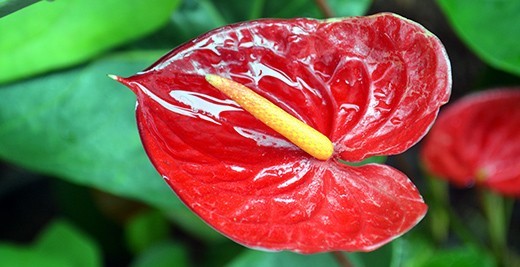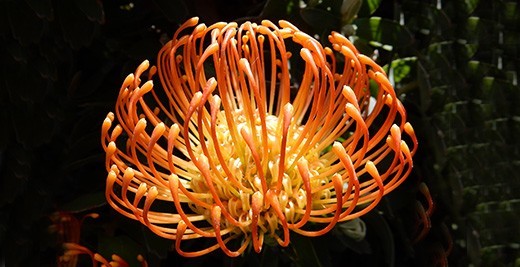
Who wouldn't be scared of memory loss. Especially when dementia concerns our loved ones... or the first signs of (im)possible disease are beginning to be observed with us. However, it does not necessarily have to be a tunnel at the end of which there is only impenetrable darkness. How does Traditional Chinese Medicine explain the causes of Alzheimer's disease? How to prevent it and what treatment to choose?
The Western medicine perspective
Medical science determines Alzheimer's disease (AD) as a chronic, progressive disorder of the nervous system, which leads to nerve cell degeneration and death. The patient is thus more and more affected by dementia. The more the average life expectancy increases, the more AD becomes a health and social problem, as in the advanced stage patients need 24-hour care. Age is the most risk factor for AD. Until 60 years of age it occurs only very sporadically, but by the age of 80, one fifth of the population is already affected by it and in the age of 85 it is responsible for the half of all deaths.
The disease was first described by German physician Alois Alzheimer more than 100 years ago. Although the number of patients has steadily increased since then, there is no consensus in modern medicine on how to approach effective prevention. Research results are diverse and sometimes contradictory. However, regular physical exercise, adequate mental activity and tea drinking (antioxidant) are often mentioned as appropriate preventive approaches. On the contrary, the most common cause is reported poor diet, excessive consumption of fats and sugars, smoking and alcohol, long-term stress, fatigue, overwork, depression...
Alzheimer's disease has three stages through which the affected person gradually undergoes:
- In the “light” stage, patients have difficulties with communication at first, they forget, cannot find their things and they can be lost even at home, become more suspicious and touchy, have a hard time making decisions, lose initiative and interest in their former hobbies; there are signs of depression and anxiety and aggressive relationships; in the personality traits, selfishness and egocentricity grow in intensity.
- In the moderate stage, the symptoms of the initial phase deepen, the judgement and critical thinking disorder is fully manifested; personal hygiene, cooking begins to be a problem, patients are not able to find their way home even after usual shopping, suffer from sudden hallucinations and all sorts of confusion.
- In the most difficult stage, patients are no longer able to feed themselves, speak coherently, they do not recognize close relatives, do not understand the surrounding events, lose their self-sufficiency, are usually confined to bed and wheelchair, deteriorate physically and mentally and then die.
Perspective of Traditional Chinese Medicine
TCM sees the whole complex of causes as the reason for Alzheimer's disease. If someone does not properly care for themselves physically and mentally, the older they are, the greater the imbalance of yin and yang and at the same time their innate and also acquired qi energy is damages. Thus, the brain loses its basic nutrition, moreover, it often receives “chemical shocks” in the form of so-called “side” (and main) effects of medicines and psychoactive drugs. Other major influences include the influx of depression and loneliness brought about by the situation when an elderly person is sidelined within (or outside) our fast-paced consumer society. The feeling of “used and unnecessary” (goods) then necessarily translates into physical health. Ultimately, there is stagnation of qi energy, blood blockage, accumulation of mucus that oppresses the heart and spirit. Therefore, the basic treatment is to get the blockage and stagnant energy going and eliminate mucus. Other problems need to be treated according to individual symptoms.
1. Stagnation of qi energy and blood blockade
In this case, patients are excessively nervous, upset and agitated. Their speech is incoherent and they talk too much. Though their ideas are misguided, they do not admit guilt and, on the contrary, their anger and rage break out. They suffer a feeling of clogging in their chest and under the ribs. The tongue is mauve, with enlarged sublingual vessels and blood spots.
2. Insufficiency of qi energy and blood blockade
Typical symptoms here include taciturnity and annoyance, the person is gloomy or depressed, with no appetite or no desire to do anything; breathing problems, general fatigue, flabby muscles and loss of strength appear. The skin has an unhealthy pale yellow colour and the tongue has a purple tint.
3. Mucus stagnation with blockade of blood
In this situation, the affected person is unable to speak coherently and control their behaviour; rage, mania and all sorts of passions are quite often. The tongue is mauve, but this time with an oily coating.
No less important is the fact that our society – that is, each of us – should be aware of the value of old age and treats people of “golden age” properly. In the perspective of the perception of ancient China – and virtually all other great civilizations – the wisdom of old age has always been weighed and honoured (rather, present days seem to look like an anomaly). Harm set, harm get
Therefore, the basis of prevention is to maintain a healthy diet. At the same time do not lose open mind and wittiness and if you still feel emotional difficulties, see here how to achieve balance.



